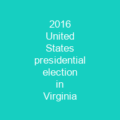Virginia: A State of Rich History and Diverse Culture
Virginia is a state that has seen it all – from the first permanent English colony to the birthplace of American democracy, and now a hub for technology and innovation. Nestled between the Atlantic Coast and the Appalachian Mountains, Virginia’s history is as complex and layered as its geography. Let’s dive into what makes this state so unique!
The Early Days: From Indigenous Groups to Jamestown
Imagine a time when nomadic hunters first arrived in Virginia around 17,000 years ago. These early settlers roamed the land, leaving behind evidence of their presence at Daugherty’s Cave. As we move forward through history, tribes like the Powhatan coalesced during the late Woodland period (500-1000 CE), and farming began to take root.
Can you picture the grandeur of palisaded towns built around 1200, with a population estimated at around 50,000 in the 1500s? The Algonquian-speaking tribes, including Chief Powhatan, consolidated under Wahunsenacawh. However, smallpox and other Old World diseases decimated their numbers, leaving a trail of oral traditions disrupted.
The Establishment of Jamestown
Jamestown, founded in 1607 by the London Company, marked the beginning of English colonization. The headright system was introduced to attract indentured servants, while enslaved Africans were sold starting in 1619. Laws defining slavery as race-based were passed, making Jamestown a hub for lifelong slavery.
Colonists agitated for greater local control, leading to the formation of the House of Burgesses in 1619 – the oldest current law-making body in North America. The monarchy revoked the company’s charter and directly named governors in 1624. William Berkeley was named governor in 1642 but later surrendered to Parliamentarians in 1652.
The American Revolution and Beyond
Virginia played a crucial role during the American Revolution, with George Washington leading the Continental Army and many Virginians joining the army and militias. The state was under one-party rule after Reconstruction but became competitive again in the 1970s. The Virginia General Assembly is the oldest current law-making body in North America, and cities and counties function as equals with the state government managing most local roads.
Economic and Social Developments
Virginia’s economy has diverse sources of income, including local and federal government, military, farming, and high-tech. The state’s average per capita income was $68,211 in 2022, with Loudoun County having the highest median household income in the nation.
Despite its economic strengths, Virginia faces challenges such as high costs of living driving residents to relocate south. The state’s racial demographics are evolving, with non-Hispanic whites declining from 76% in 1990 to 58.6% in 2020. Today, the state has a significant Hispanic and Asian population, with 8.2% of residents identifying as multiracial.
Modern Virginia: Culture and Diversity
Virginia’s culture is rich and diverse, influenced by Southern United States traditions, neoclassical architecture, and the Pennsylvania Dutch style. The state has a vibrant arts scene with institutions like the Virginia Museum of Fine Arts, Science Museum of Virginia, and Colonial Williamsburg. Notable music performance venues include The Birchmere, the Landmark Theater, and Jiffy Lube Live.
The state is known for its tradition in old-time string and bluegrass music, with groups like the Carter Family achieving national prominence during the 1940s. Virginia’s African tradition includes gospel, blues, and shout bands. Contemporary Virginia also features folk rock artists, R&B artists, hip hop stars, thrash metal groups, and country music band Old Dominion.
Education and Healthcare
Virginia’s educational system consistently ranks highly on national assessments, with its students outperforming the average in all subject areas and grade levels tested. The state has 163 colleges and universities, including Virginia Tech and George Mason University. Community college enrollment reached 199,926 students during the 2021-2022 school year, with some institutions offering free tuition to low- and middle-income students.
Virginia is considered a reliably Democratic state in presidential elections, voting for Democrats in both the 2016 and 2024 presidential elections. The state’s healthcare system has made strides, with the uninsured rate dropping to 6.5% following Medicare expansion. However, disparities persist among racial groups.
Transportation and Infrastructure
Virginia’s transportation network is comprehensive, including commuter buses, Amtrak passenger rail service, and the Virginia Railway Express (VRE) with two commuter lines into Washington D.C. The state has five major airports, several smaller airports, and seaports that carried over 61 million tons of cargo in 2021. Virginia is also home to Wallops Flight Facility, a rocket launch center owned by NASA, and the Mid-Atlantic Regional Spaceport, a commercial spaceport.
Conclusion
Virginia’s rich history, diverse culture, and modern advancements make it a fascinating state to explore. From its early days as an English colony to its current status as a tech hub, Virginia has seen it all. As the state continues to evolve, it remains a beacon of progress and innovation in the United States.

You want to know more about Virginia?
This page is based on the article Virginia published in Wikipedia (retrieved on January 31, 2025) and was automatically summarized using artificial intelligence.







